Ilahi
(1932-2007)Ilahi (1931-2007), vocalist of classical Persian singing (avaz) and one of the most important female vocalists to perform in the Golha programmes from 1338/1959 through 1357/1979. Having begun her musical career at an early age singing popular songs under her maiden name, Baharih Ghulam-Husayni, she subsequently changed her course and began her training under great masters of Persian avaz, such as ‘Abdu’llah Davami and Ghulam-Husayn Banan. Beginning her professional career in 1950, she performed a number of lyrical songs in Persian films that were released between 1951 to 1957; as a consequence of these songs, she attracted the attention of the genius composer of the day, Majid Vafadar, who persuaded her to perform a number of his works with his orchestra and then recorded a number of records with her as the vocalist accompanying it (Tehran, Iran Records, 1953-1957). Her deep, velvety, powerful voice attracted the attention of Davud Pirniya. Although following his experience with Marziye, Pirniya was quite strict in his selection of female vocalists for the Golha programmes, he did persist and selected Ilahi. In her first formal programmes, she performed a number of classical compositions by Ruhu’llah Khaliqi and Javad Ma‘rufi between the years 1957-1958, after which she became quite popular. Her powerful, delicate, and quite flexible voice, which was capable of delivering diverse vocal tonalities with great facility and force, in time turned her into the foremost female vocalist in the history of the Golha programmes. Her most beautiful works in these programmes comprise her performances of the compositions and arrangements by Javad Ma‘rufi, Humayun Khurram, the Lashgari brothers, ‘Ali Tajvidi, and Firidun Shahbaziyan. It is worthy of note that Ilahi was also active in other domains that were unrelated to her musical career in the Golha programmes, such as for example, her short-lived political activities for the Iranian Communist party (Tudeh), performing in many recreational and occasional songs, featuring as a vocalist in films, singing at marriage parties of the wealthy classes in Tehran, singing in cafes and cabarets, performing works in the domains of classical, pop, and popular music for both the middle and lower classes of society, making trips to Europe to perform in concerts for Iranians abroad, and many concerts given for charitable causes to which she devoted a significant part of her life.
Ilahi’s artistic record reveals a large number of recorded works within a period encompassing approximately 55 years. However, many of her old records released from 1953 to 1978 are quite rare and a complete list of her works is yet to be prepared. She was one of the few female vocalists who was both a fine connoisseur of music and also possessed phenomenal powers of vocal delivery, which she made good use of in performance of diverse works, which were at times of completely opposite genres. Her vocal artistry in performing classical Persian songs (tasnifs) in the Golha, her pop lyrical songs (at times as a vocalist accompanying ‘Arif, Vigin, Manuchihr, etc.), and popular songs reveal a diversity of tones, characters, and colourings which to date has been unheard of by any female vocalist. Such qualities made even an eminent and hard-to-please master like ‘Alinaqi Vaziri admire her. It is worthy of note that for reasons still unclear, she never attained to her true place in the Iranian musical community and her exalted artistic rank was never truly appreciated during her own lifetime. Owing to unfavourable conditions that prevailed and were experienced by all musicians in post-revolutionary Iran, she settled in Europe from 1979 onwards, and for a period, cooperated with one of the main opposition organisations whose stance was against the Islamic Republic of Iran. However, after a number of years, she broke away from that organisation and returned to Iran after obtaining the consent of Iranian officials. During her 28 year residence abroad, her musical activities did not reach a level comparable to her career before 1979. She only managed to release a single album titled Saqi (“Cupbearer”), featuring her on vocals by way of remembrance of her past golden career. For obvious reasons, the distribution of her works have been legally banned since 1979 in Iran. She returned to Iran in 2006, where she died shortly thereafter (2007) from cancer. She may be regarded as a talented singer whose powers as a vocalist were simply phenomenal; during the period when the Golha programmes were on the air, her career thrived with unprecedented glamour and glory.
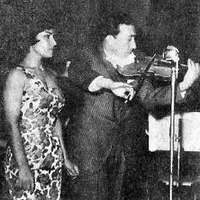
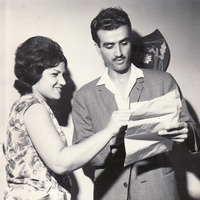
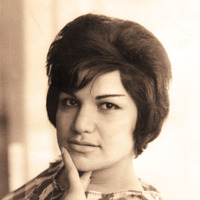
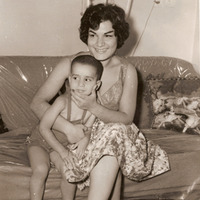
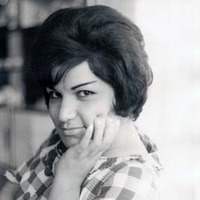
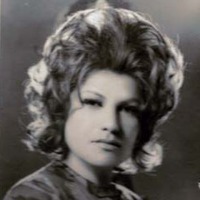
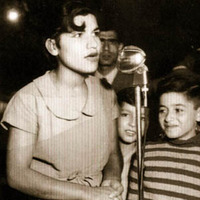
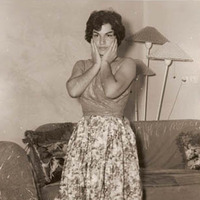

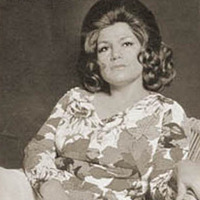
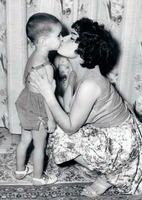
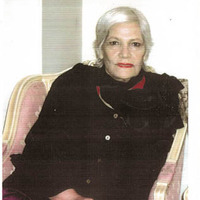

 In association with The Iran Heritage Foundation © All rights reserved 2025. Jane Lewisohn | Website by
In association with The Iran Heritage Foundation © All rights reserved 2025. Jane Lewisohn | Website by